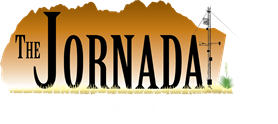| Abstract | The United States Southwest is the incubator of the country's fastest growing urban landscapes, but few studies have quantified urbanization in the region. Using geospatial and archival research techniques our objectives are to assess rates, patterns, and drivers of land change in Las Cruces, New Mexico between 1955 and 2007, thereby stimulating more dialogue on the transformation of Southwestern landscapes. Our results suggest that Las Cruces may be on a path toward urban immensity. During the last fifty years, the city's population has grown at an average annual rate of 4.5%. The landscape became transformed concomitantly: almost 30% of the study area was converted from farm- and rangeland to residential and urban development. The pattern of development changed over time. Between 1955 and 1980, farm- and rangeland were perforated and dissected to make room for housing and infrastructure developments, causing the landscape to become increasingly fragmented and heterogeneous. Between 1980 and 2007, fragmentation continued, but was replaced in some areas by the shrinking and attrition of left-over farm- and rangeland and by the coalescence and growth of residential and urban clusters. Major drivers of growth included natural gain; in-migration from Mexico and the United States due to Sun Belt climate, federal employment, and other factors; as well as the conversion of a large government land base to private development. Absent viable land conservation programs, the formerly little known community of Las Cruces may face the same growth trajectory as major Southwest urban centers, slowed only temporarily by the current recession. land change/ urbanization/ landscape fragmentation/ population growth/ southwest/ Las Cruces |


